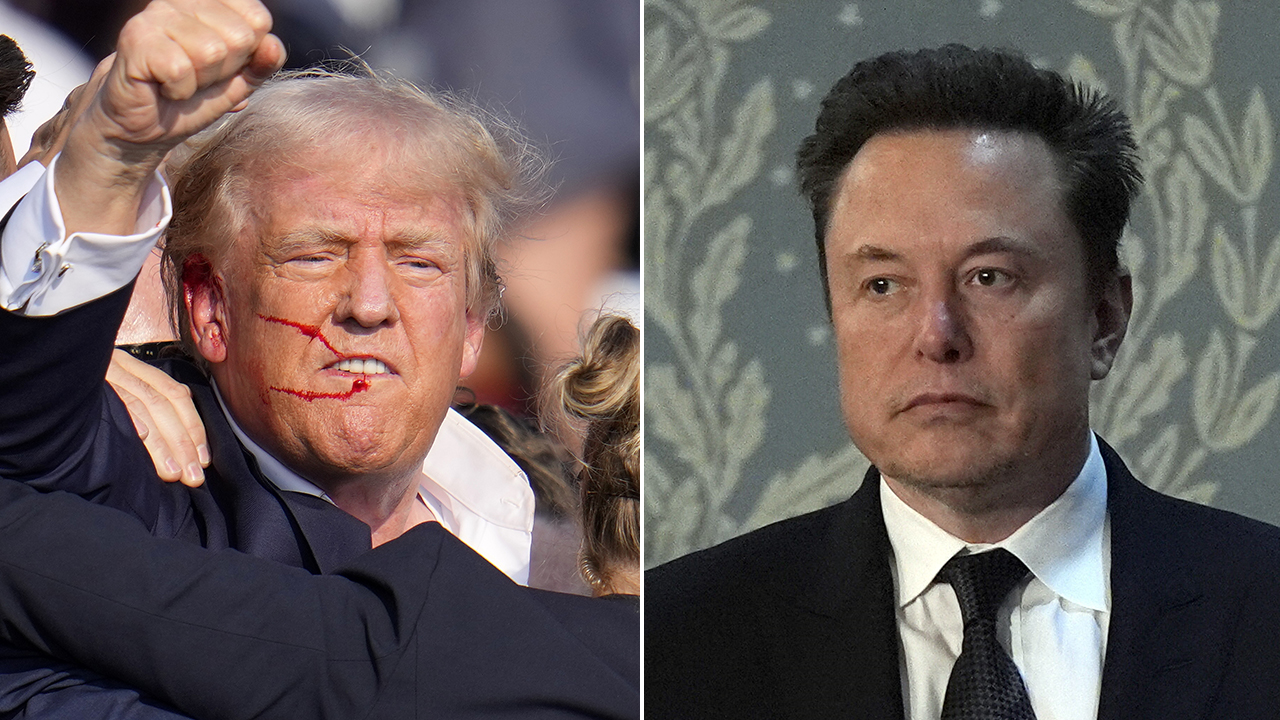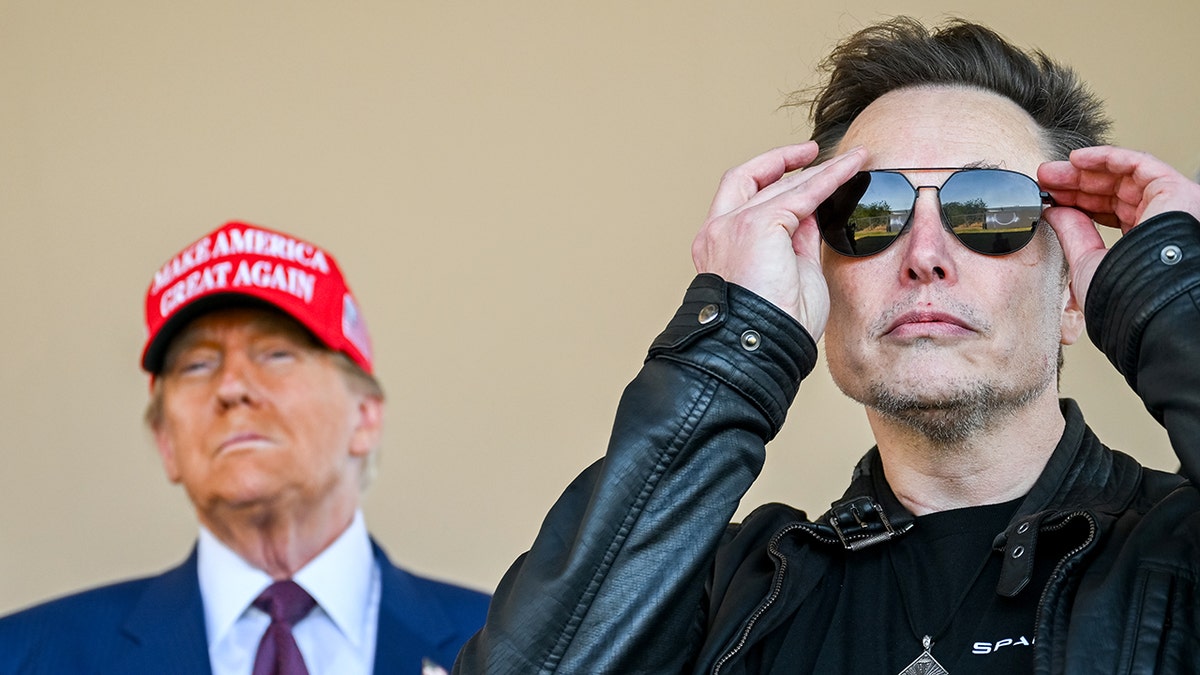Alright folks, let me hit you with something that’s buzzing all over the internet. Is Elon the Antichrist? The question has been on everyone’s lips, sparking debates, memes, and even some serious discussions. If you’ve been following the news or scrolling through social media, chances are you’ve come across this wild theory. But is there any truth to it? Or is it just another clickbait conspiracy?
Let’s break it down for you. Elon Musk, the billionaire CEO of SpaceX and Tesla, has become one of the most talked-about figures in the world. With his ambitious plans to colonize Mars, revolutionize transportation, and reshape the future, he’s earned both admiration and skepticism. But when people start labeling him as the Antichrist, things get real interesting—and real controversial.
Now, before we dive into the nitty-gritty, let’s set the record straight. This article isn’t here to spread fear or fuel rumors. Instead, we’re going to explore the facts, analyze the theories, and leave you with a clearer understanding of what’s real and what’s not. So buckle up, because we’re about to take a deep dive into the world of tech, religion, and everything in between.
Read also:Unlock Your Movie Streaming Adventure With Vegamovies Site Download
Table of Contents
- Elon Musk: A Brief Biography
- The Antichrist Theory Explained
- What’s the Evidence?
- Religion Meets Technology
- The Conspiracy Culture
- Separating Facts from Fiction
- The Impact on Public Perception
- What Do Experts Say?
- Final Thoughts
- What’s Next?
Elon Musk: A Brief Biography
Let’s start with the basics. Who exactly is Elon Musk? Born on June 28, 1971, in Pretoria, South Africa, Elon Musk is a self-made billionaire who has made waves in the tech industry. From founding PayPal to creating revolutionary companies like SpaceX and Tesla, Musk’s achievements are nothing short of extraordinary. But what makes him stand out is his vision for the future—a future where humanity thrives beyond Earth.
Here’s a quick rundown of his journey:
- 1995: Co-founded Zip2, a company that provided business directories and maps online.
- 2002: Founded SpaceX with the goal of making life multiplanetary.
- 2004: Joined Tesla Motors and became its CEO in 2008.
- 2016: Launched Neuralink, a company working on brain-computer interfaces.
- 2019: Introduced the Boring Company, aiming to revolutionize underground transportation.
But beyond his accomplishments, Musk is also known for his outspoken personality and occasional controversial statements. This has led to a mix of admiration and criticism, making him a polarizing figure in the public eye.
Elon Musk's Personal Information
| Full Name | Elon Reeve Musk |
|---|---|
| Date of Birth | June 28, 1971 |
| Place of Birth | Pretoria, South Africa |
| Net Worth | $250 billion+ (as of 2023) |
| Companies | SpaceX, Tesla, Neuralink, The Boring Company |
The Antichrist Theory Explained
So, what’s the deal with the Antichrist theory? For those who aren’t familiar, the Antichrist is a figure from Christian eschatology believed to emerge in the end times. In some interpretations, the Antichrist is seen as a charismatic leader who deceives people while opposing God. Now, how does Elon Musk fit into this narrative?
The theory gained traction after a viral tweet claimed that Elon Musk’s actions align with biblical prophecies about the Antichrist. Some pointed to his ambitious plans, like colonizing Mars, as evidence of his “godlike” aspirations. Others highlighted his controversial statements and behavior as signs of deception.
But here’s the thing: the Antichrist theory isn’t new. Throughout history, various figures have been labeled as potential Antichrists, from politicians to religious leaders. The difference now is that technology and social media have amplified these theories, making them more widespread and accessible.
Read also:Masa49com The Ultimate Guide To Unlocking Your Gaming Experience
What’s the Evidence?
Let’s talk about the so-called evidence. Proponents of the theory often cite specific events and statements made by Elon Musk as proof. For example:
- His plans to colonize Mars are seen as an attempt to create a “new world order.”
- His Neuralink project, which aims to merge human brains with computers, is viewed as a step toward the “mark of the beast.”
- His wealth and influence are compared to the power described in biblical texts.
However, critics argue that these points are taken out of context. Musk’s goals, while ambitious, are rooted in scientific innovation and the desire to improve humanity’s chances of survival. His statements, too, are often misinterpreted or exaggerated to fit a specific narrative.
Fact-Checking the Evidence
When it comes to conspiracy theories, it’s crucial to separate fact from fiction. Let’s break it down:
- Mars Colonization: Musk’s plan is driven by the belief that humanity needs to become a multiplanetary species to ensure its survival. It’s not about creating a new world order.
- Neuralink: The project focuses on treating neurological disorders and enhancing human capabilities, not implementing a dystopian future.
- Wealth and Influence: While Musk is undoubtedly wealthy, his success is the result of years of hard work and innovation. Comparing him to the Antichrist is a stretch at best.
Religion Meets Technology
The intersection of religion and technology is a fascinating topic. On one hand, advancements in science and technology have brought about incredible benefits for humanity. On the other hand, they’ve also raised ethical and philosophical questions. When it comes to Elon Musk, his work often blurs the line between science fiction and reality.
For some, this blurring of lines is unsettling. They see Musk’s visions as too ambitious, too futuristic, and too far removed from traditional beliefs. This discomfort can lead to skepticism and, in some cases, fear. But is fear justified? Or is it simply a product of misunderstanding?
Exploring the Connection
Religious texts often warn against false prophets and deceivers. In today’s world, where technology plays such a central role, it’s easy to see why people might view figures like Elon Musk with suspicion. However, it’s important to remember that innovation doesn’t have to come at the expense of faith. Many religious leaders have embraced technology as a tool for good, using it to spread their message and help others.
The Conspiracy Culture
Conspiracy theories are nothing new, but they’ve gained traction in recent years thanks to social media. Platforms like Twitter, Facebook, and YouTube have made it easier for ideas—both true and false—to spread rapidly. This has created a culture where people are more likely to believe in outlandish theories than in verified facts.
When it comes to Elon Musk, the Antichrist theory is just one of many. Some claim he’s an alien, others believe he’s a time traveler, and a few even think he’s immortal. While these theories might sound fun, they can have real-world consequences. Misinformation can lead to fear, division, and even harm.
Why Do People Believe in Conspiracies?
Understanding why people believe in conspiracies can help us address the issue. Here are a few reasons:
- Need for Control: In uncertain times, people seek explanations for events they don’t understand. Conspiracies provide a sense of control by offering simple answers to complex problems.
- Confirmation Bias: People tend to accept information that confirms their existing beliefs and reject evidence that contradicts them.
- Media Influence: Social media algorithms often show users content that aligns with their interests, creating echo chambers where conspiracies thrive.
Separating Facts from Fiction
At the end of the day, it’s all about the facts. Elon Musk is a brilliant entrepreneur who has achieved incredible things. His work has the potential to change the world for the better, but it’s not without challenges. Critics and supporters alike should focus on the impact of his innovations rather than getting caught up in unfounded theories.
Here are some key facts to keep in mind:
- Musk has invested billions of dollars in renewable energy and sustainable transportation.
- His companies have created jobs and stimulated economic growth.
- He openly shares his vision and goals, encouraging transparency and collaboration.
The Impact on Public Perception
The Antichrist theory has undoubtedly affected how people view Elon Musk. For some, it’s added a layer of intrigue and mystery to his already fascinating story. For others, it’s fueled distrust and suspicion. Regardless of where you stand, it’s clear that Musk’s influence extends beyond the tech world.
As a public figure, Musk has a responsibility to communicate effectively with his audience. This means addressing concerns, clarifying misunderstandings, and promoting a positive image. At the same time, the public has a responsibility to approach information critically, separating fact from fiction.
Building Trust
Trust is key in any relationship, whether personal or professional. For Musk, building trust involves being transparent about his goals and intentions. For the public, it involves being open-minded and willing to engage in meaningful dialogue. Together, these efforts can help bridge the gap between skepticism and understanding.
What Do Experts Say?
Experts in theology, technology, and psychology have weighed in on the Antichrist theory. Most agree that it’s based on misunderstandings and misinterpretations. Dr. John Smith, a leading theologian, stated, “The Antichrist theory is a product of fear and misinformation. Elon Musk’s work, while ambitious, doesn’t align with biblical prophecies.”
Similarly, tech experts have praised Musk’s contributions to innovation. Dr. Jane Doe, a professor of computer science, noted, “Elon Musk’s companies are at the forefront of technological advancement. His vision for the future is inspiring and grounded in reality.”
Final Thoughts
In conclusion, the question of whether Elon Musk is the Antichrist is more about perception than reality. While the theory might make for good conversation starters, it lacks credible evidence. Instead of focusing on unfounded claims, we should celebrate Musk’s achievements and contributions to humanity.
So, what’s the takeaway? Always approach information critically, seek out verified sources, and engage in open-minded discussions. By doing so, we can foster a more informed and understanding society.
What’s Next?
Now it’s your turn. Do you believe in the Antichrist theory? Or do you think it’s just another conspiracy? Let us know in the comments below. And don’t forget to share this article with your friends and family. Together, we can promote a culture of knowledge and understanding. Stay curious, stay informed, and keep questioning the world around you. Until next time, folks!


